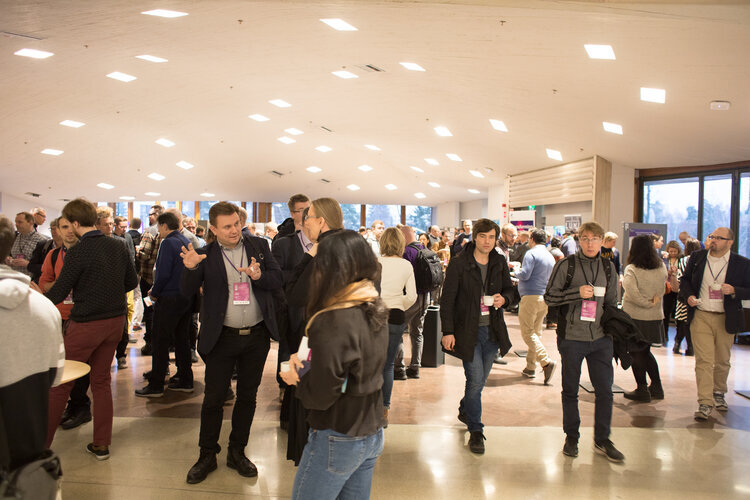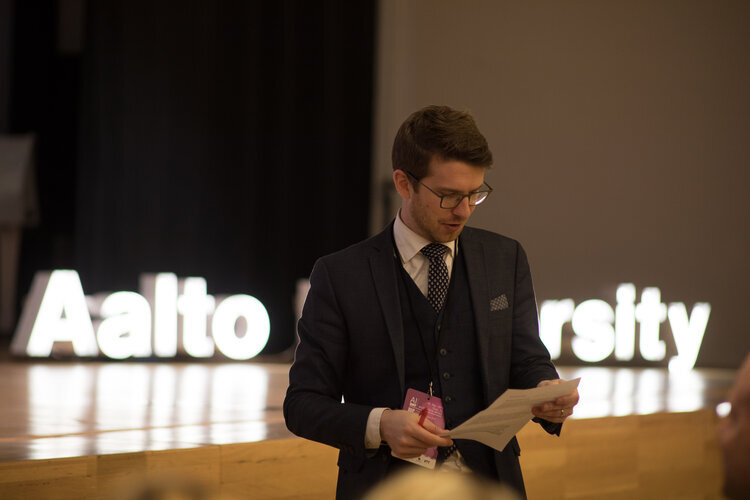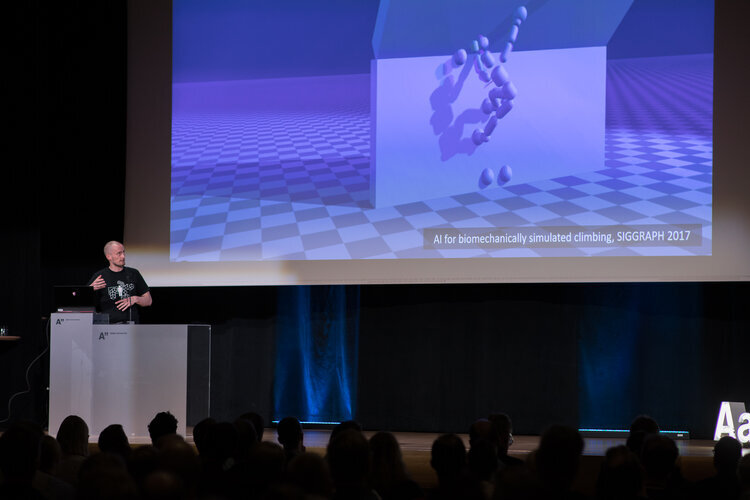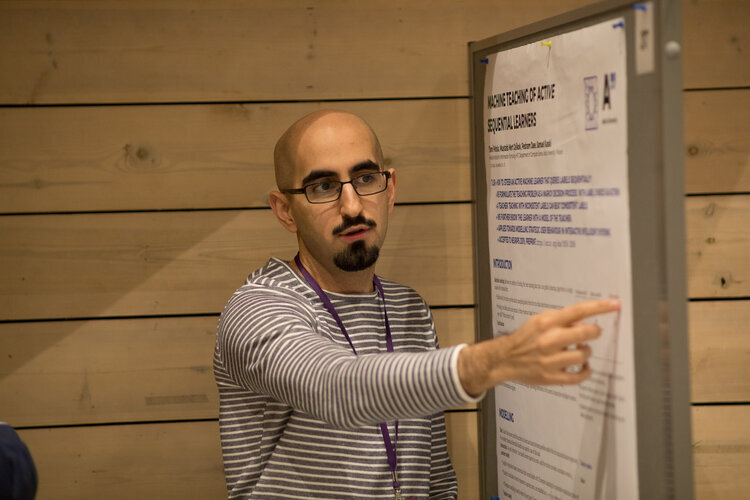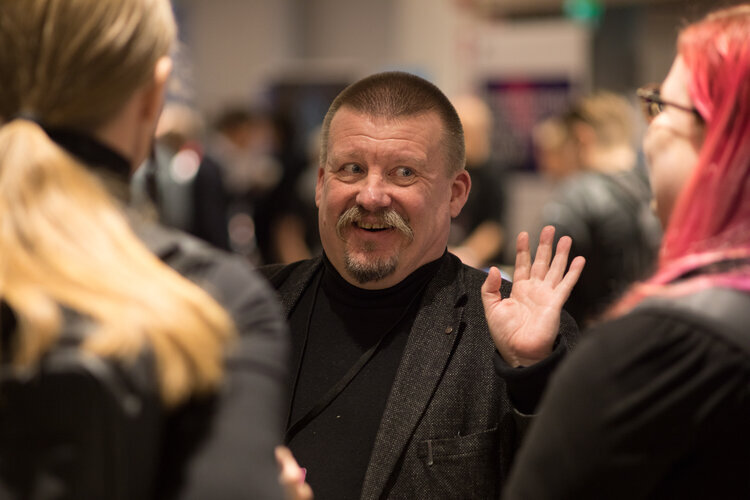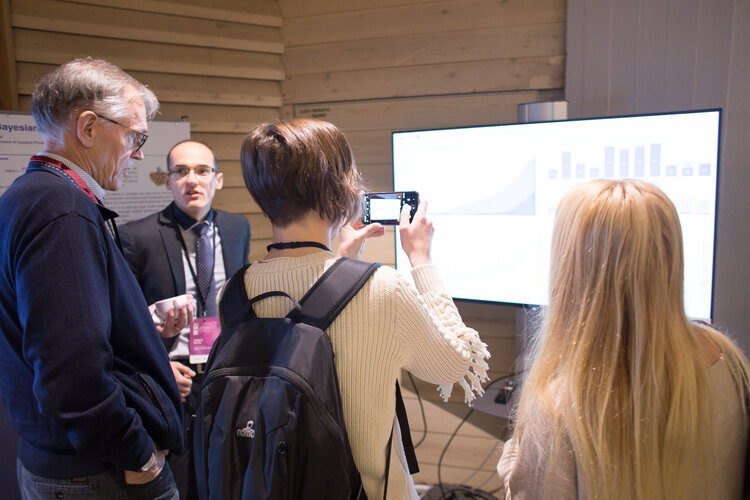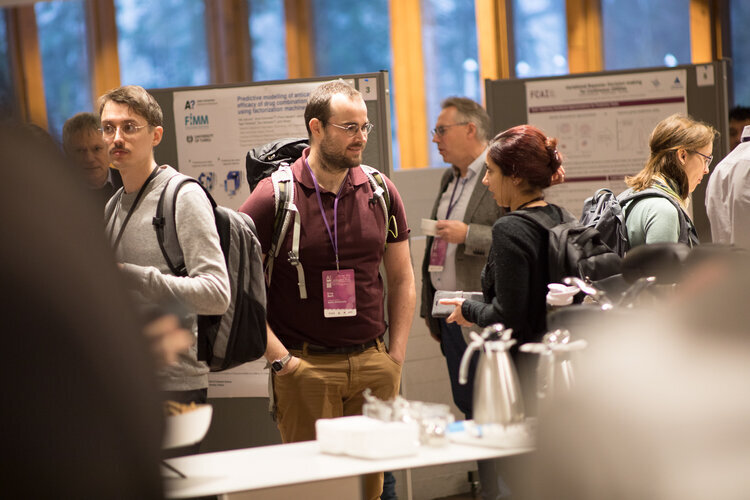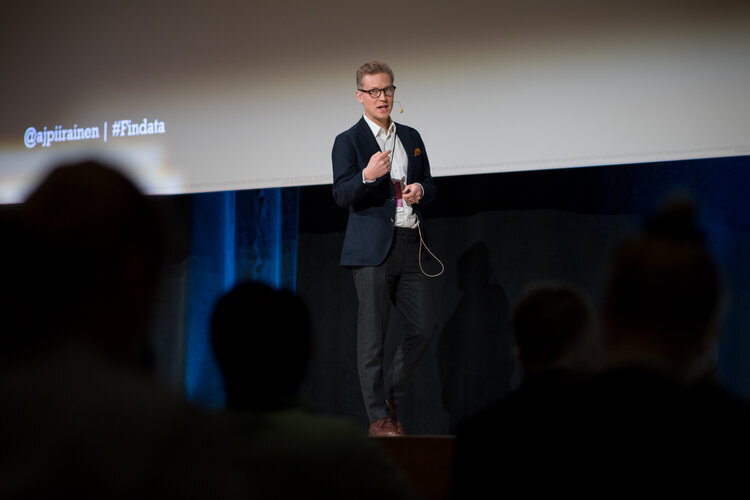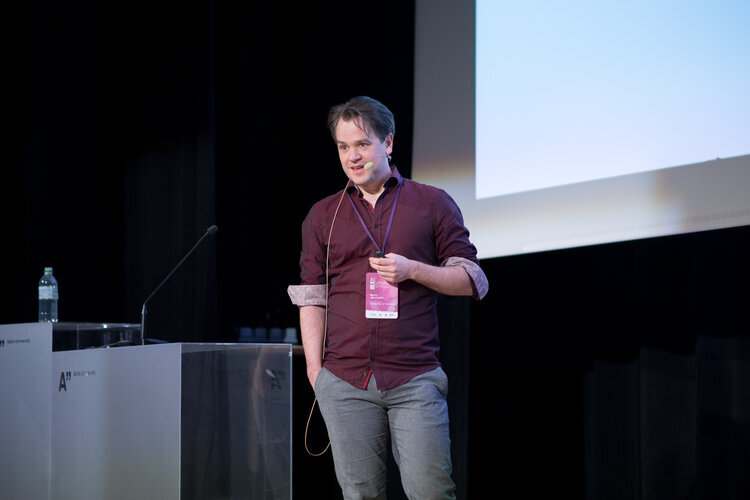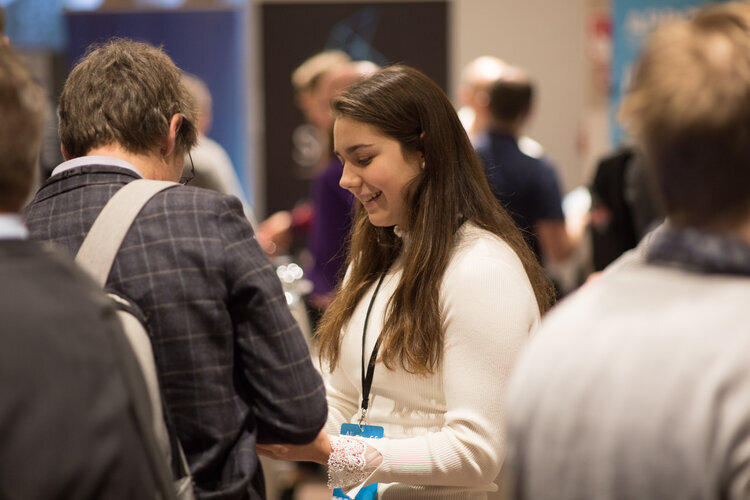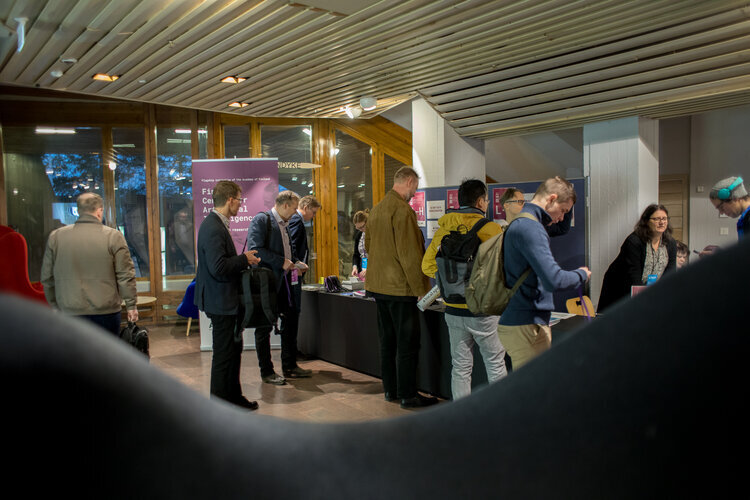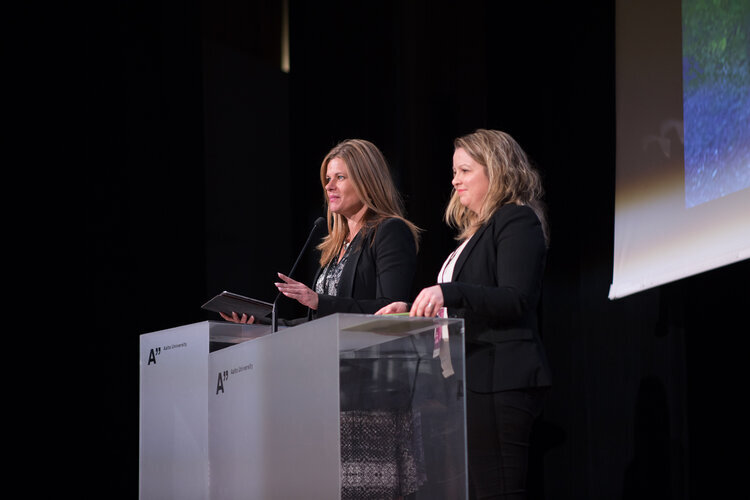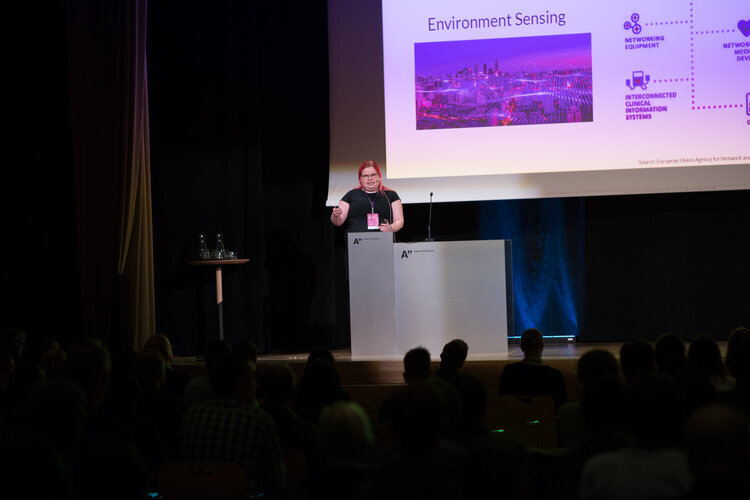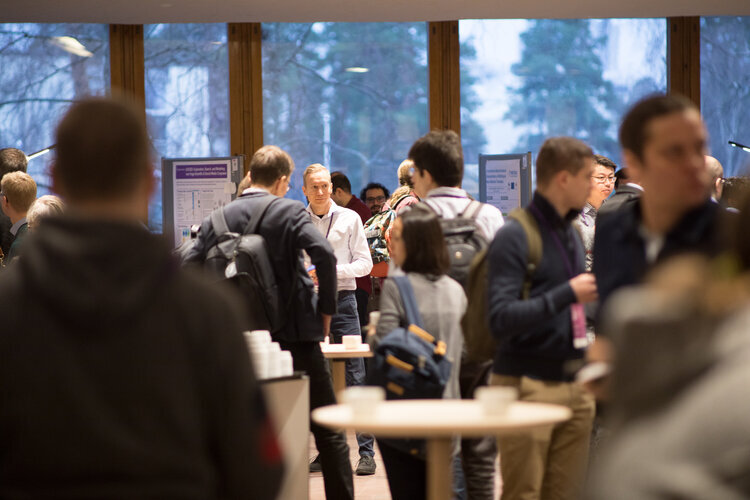How ‘AI ready’ is Europe? How AI changes cancer research and treatment? These and many other topics were discussed at AI Day 2019
FCAI’s third annual AI Day organized on November 26 attracted hundreds of participants to discuss and hear about the newest trends in AI research.
Similar to the previous years, AI Day 2019 took place at Aalto University Campus in Otaniemi, Espoo. The event included two keynote sessions with eleven talks in total, over 90 poster and demo presentations, and the opening event of ‘Connecting the Dots’ AI exhibition by FCAI and Aalto Digi Platform.
FCAI’s Vice Director and HIIT Director Petri Myllymäki opened AI Day 2019 taking the time to present FCAI activities and research programmes. FCAI currently runs seven research programmes that do fundamental AI research on carefully selected high-impact areas.
Myllymäki said: “In addition to world-class research on new type of AI methods that will remove the biggest bottlenecks in wider application of AI, we need collaboration between AI researchers, other scientists, companies and public organisations in order to maximize impact for the Finnish industry and society at large - this is what the FCAI flagship is all about."
Petri Myllymäki opened AI Day 2019.
David Pool, Curious AI
The first keynote speaker David Pool, UK Managing Director at Curious AI, emphasized the increasingly important role of AI and machine learning for companies. He said that these days all big companies speak about artificial intelligence and machine learning, and he gave various examples of AI projects that have successfully moved from invention to implementation.
Pool talked about AI readiness across Europe and the region’s progress and potential, pointing out that Europe has six million professional developers – more than the US – but realises only about 12% of its full digital potential. According to Pool, Finland’s AI readiness is within the top 25% in the whole world, along with countries such as the US, Ireland, Sweden, and the United Kingdom.
A person in the audience asked Pool how can small countries like Finland compete with big economies, such as the US and China, and in his answer, Pool emphasized the role of data curation, effective data management, and Europe’s ability to focus on one or two areas of research.
Sampsa Hautaniemi
Jörg Tiedemann
Professor Sampsa Hautaniemi’s (University of Helsinki) spoke about AI in cancer research and treatment. Hautaniemi pointed out that, as not all patients respond to the same standard treatments, we need more personalized options, and in order to develop more personalized treatments, we need cancer research. AI methods are already part of cancer research and soon part of cancer treatment, too, he said.
Professor Jörg Tiedemann (University of Helsinki) spoke about language as the key factor of both human and artificial intelligence. Humans would not have reached their current level of intelligence without language that allows them to convey information to others in the way we can, and this, according to Tiedemann, is a motivation to study language in the context of AI.
Self-driving cars, health data usage, and beating poverty
The other keynote speakers were Tuomas Rintamäki, Matti Järvisalo, Antti Piirainen, Perttu Hämäläinen, Ella Peltonen, Juha Vesala, and Katja Hagman and Heli Hidén.
Rintamäki, Deep Learning Engineer at NVIDIA, explained in-depth what type of an AI infrastructure NVIDIA developes for self-driving cars. Professor Järvisalo (University of Helsinki) focused on the impact of automated reasoning, emphasizing the fact that AI and machine learning are not synonyms, and the importance of combining both symbolic fact-based and probabilistic views.
Piirainen is the Head of Communications at Findata and he introduced his organization’s work, a Social and Health Data Permit Authority that starts operating at the beginning of 2020. Findata will be a one-stop shop for secondary use of social and health data.
Professor Hämäläinen (Aalto University) presented simulation-based design in, for instance, games and user interfaces, while Dr Peltonen (University of Oulu, 6G Flagship) explained how we go towards edge-native AI. You can read more about the research conducted by Peltonen and her colleagues at FCAI and 6G Flagship here.
Vesala, postdoctoral researcher at the University of Helsinki, brought up legal perspectives of AI speaking about safeguarding and promoting innovation, creativity, and competition. Hagman and Hidén from the City of Espoo challenged the audience to think about ways how technology, ecosystem, knowhow, and AI could help to beat increasing poverty in families with children.
The opening event of ‘Connecting the Dots’ AI exhibition, which included networking, music, food and drinks, provided a festive way to close this year’s AI Day. The exhibition is open until January 15, 2020.
Author: Anu Haapala / Aalto University
Photos: Matti Ahlgren / Aalto University
Click the photo below to see more photos from AI Day 2019!
